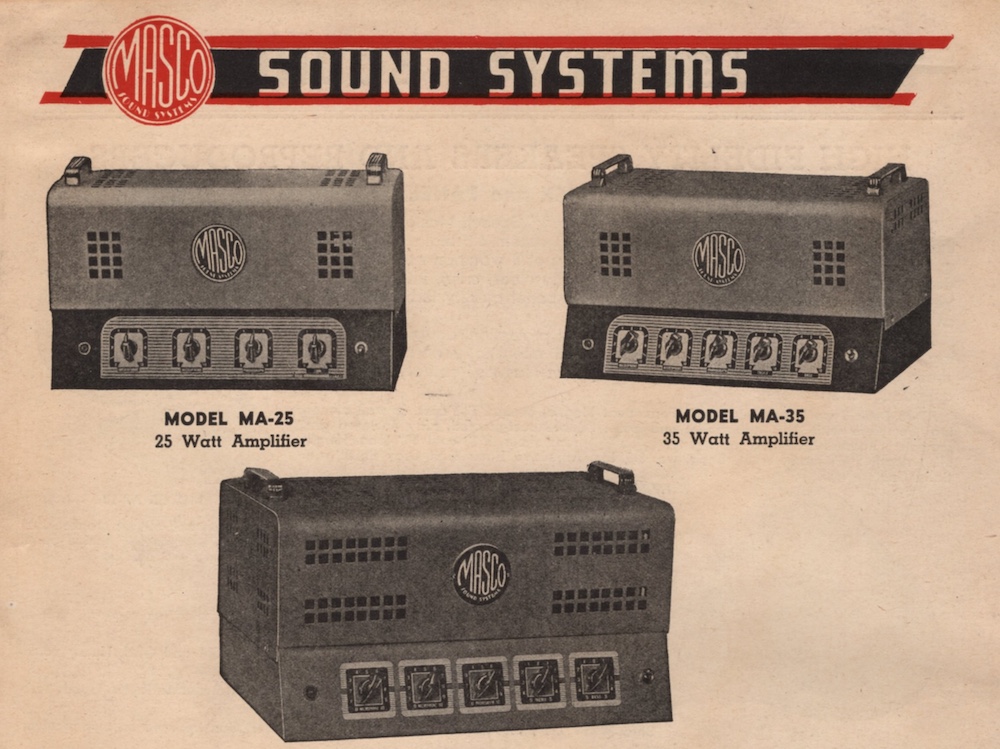
MASCO was one of America’s leading manufacturers of public-address equipment during the vacuum-tube era. The earliest record I can find of the firm is 1934, although it’s likely they began operations earlier. MASCO is an acronym of ‘Mark Simpson Manufacturing Company’ and they were based in Long Island City, Queens, NY.
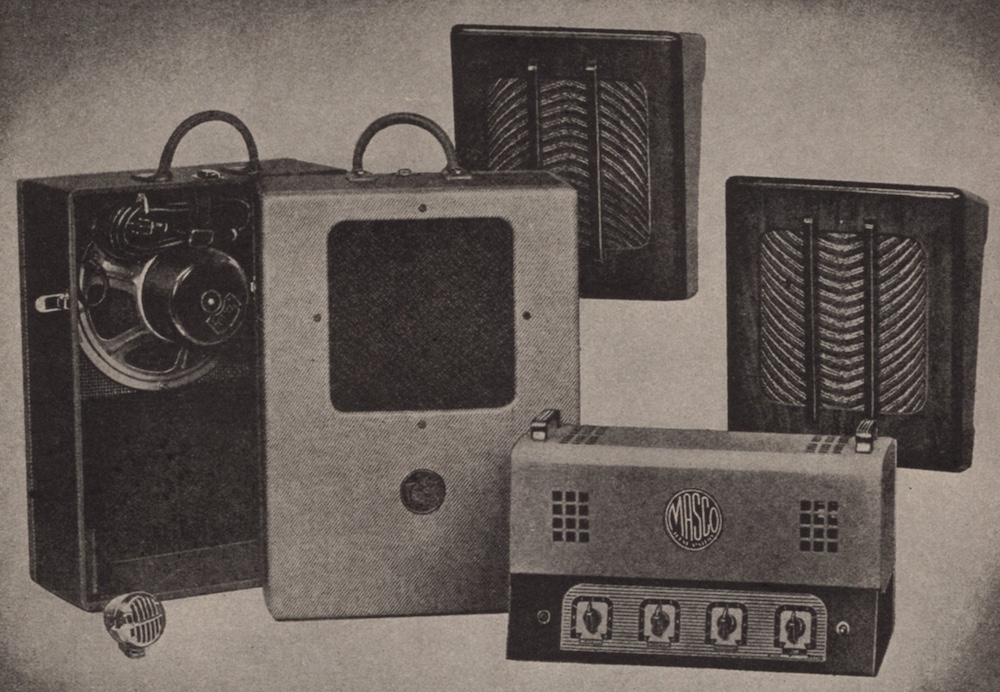
Toolbox-sized MASCO PA heads, along with similar models from competitors Operadio, Bogen, Dukane, Stromberg-Carlson, and Newcomb, are simple mixer-amplifiers that were made in huge numbers in the post-war period. Also common are similar units from retail giants Knight and Lafayette Radio Electronics as well as the much larger firm RCA; Altec also made mixer-amps in the period but they are quite rare and very very pricey today With one or more microphone and line-level inputs, a tone control or two, and one or two speaker output jacks on the rear, these allowed for basic control of a modest sound-system. Many models offered 70V outputs for ‘distributed sound systems’ in addition to the usual 4, 8, and 16 ohm ‘voice-coil’ outputs.
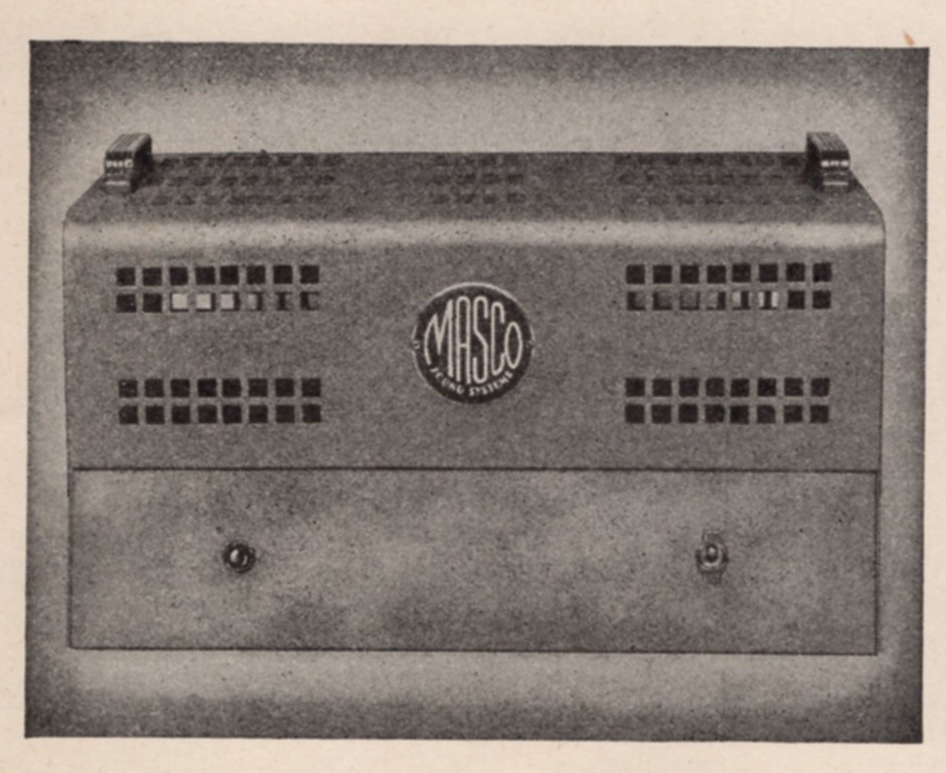
These units were made of steel and wired point-to-point; they are very durable and many have survived, although if you happen upon one today it will likely need most of the caps (filter, bypass, and coupling) replaced, as well as most of the tubes and the power lead ETC. Once that work is done, with some basic modifications (changing the i/o jacks to 1/4″ and converting the input stages from grid-leak bias to cathode bias), you can have a guitar amp that is remarkably close to a Fender tweed for 1/10th the price. Back fifteen, twenty years ago, I did a ton of conversions like this; in 2005-2010 you could still get these amps readily for under $100 on eBay. They can still be had in the $20-$100 range at flea markets, but online prices have shot up as with everything else in the ‘vintage’ electric-instrument world.
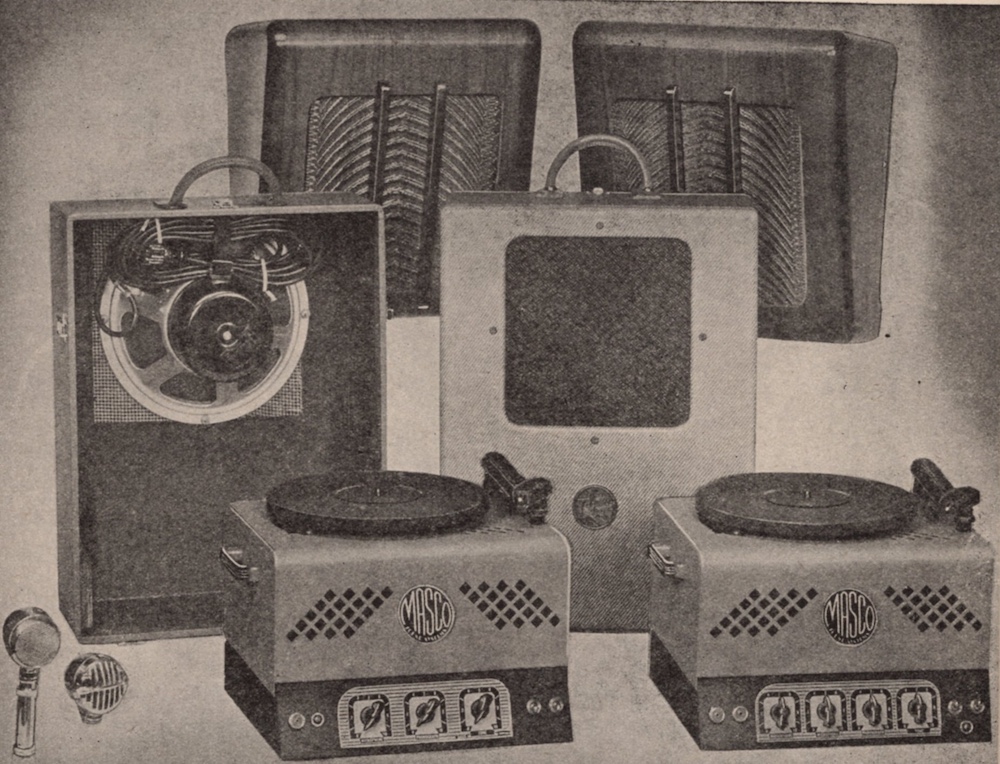
Masco PA ‘heads’ were sold complete, or without tubes. They were also offered alone or with auxiliary equipment such as microphones, portable cases including speakers, ‘phonograph tops’ (see above), and a range of different ‘permanent install’ speakers.
Click the link below to download the entire 24PP 1947 Masco Catalog #45. Products covered, with photos, descriptions, and specs, include: MASCO MA-35RC amplifier & record changer; MA-20HF hi-fi amp; MA-17, MA-25, MA-35, MA-50, MA-75 mixer-amplifiers; MC-25P, MAS-17P phonograph amplifiers; MB-50 and MB-100 booster amplifiers and MBD-8 driver amp; the MASCO MAP-15 musical instrument amp; RC-1 portable record changer and MPA-3 ‘all-electric phonograph reproducer’; plus a huge range of wall-mounted speaker baffles, horns, mic stands, Jensen drivers and enclosures, and transformers.
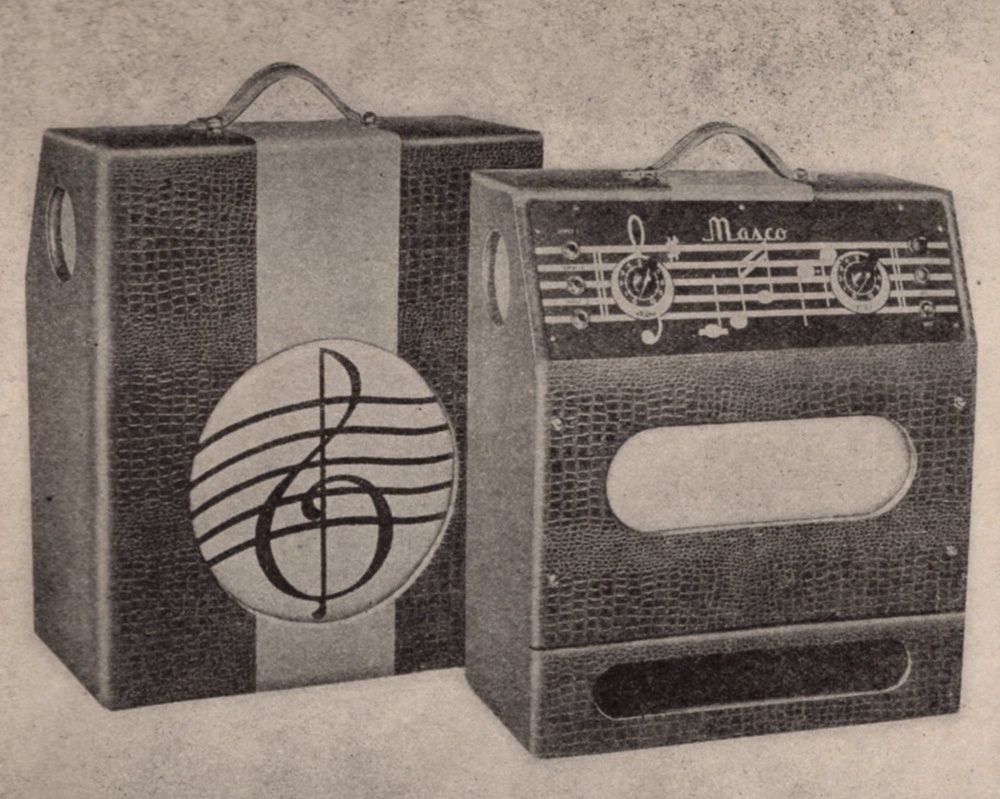
MASCO also offered a ‘musical instrument amplifying system’ model MAP15 in 1947. Or as we would term it – a guitar amp. With 2 6L6 rated at just 15 watts and a 12″ speaker, I would bet these sound awesome. The preamp and PI tubes are 7F7 (Loktal 6SL7). To go along with the amp they also sold model L-10 and MC-20 ‘contact mic,’ or as we call them, pickup. Because I would have to imagine that electric guitars were extremely rare in 1947, but acoustic guitars (and basses, and cellos, and pianos) were everywhere.

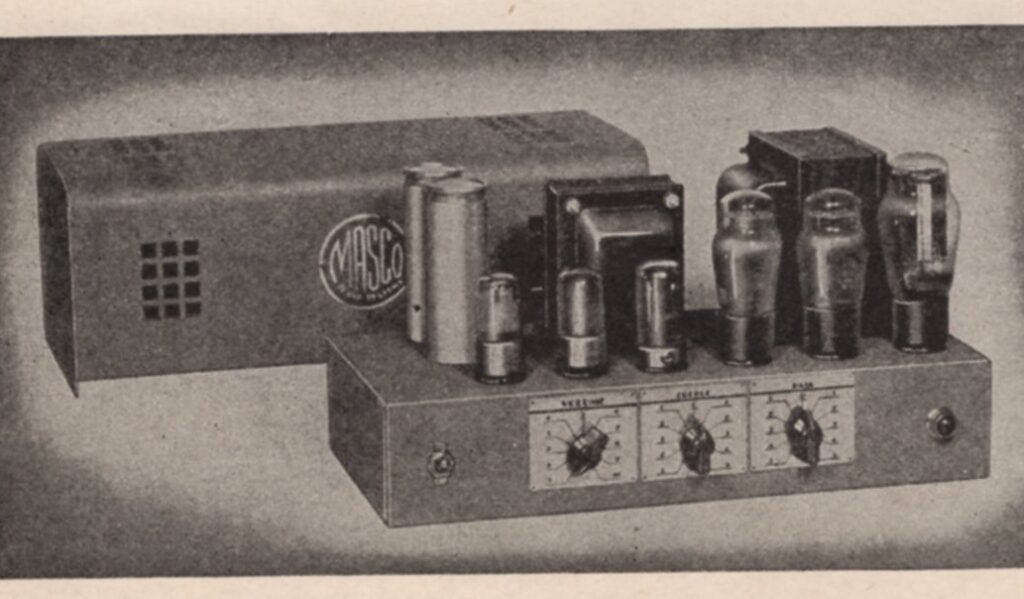
They also offered a ‘high-fidelity’ amplifier model MA-20HF, which offered then-novel independent bass and treble controls and promised a response of +/- 1.5 DB from 30hz to 15k hz and 25W output at 5% THD (!!!). It also offered much better hum performance than their comparable mixer-amps, although this is likely simply due to the lower overall system gain (77db vs 125db). Regardless, given the limitations of source media available in 1947, I think this would have been a fine amp in its time and def worth seeking out today. I don’t imagine they sold too many of these.
Got any MASCO tips or lore? Weigh-in!
Click the link below to download the accompanying 1947 MASCO pricelist: